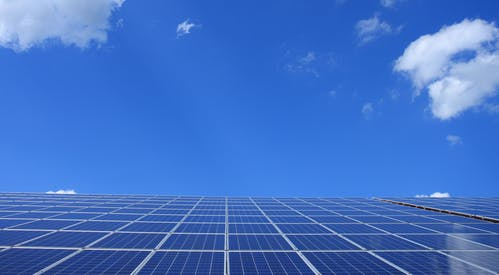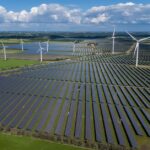Libya Celebrates Inauguration of First Solar Power Plant in Kufra
Libya has marked a significant milestone with the official inauguration of its first solar power plant in the southeastern region of Kufra, situated in the Sahara Desert. Completed in a record time of eight months, the plant is now fully operational and has a capacity to generate an estimated 2,182 MW of electricity annually.
With a capacity of 1 MW, the solar power plant has the potential to produce up to one million watts of electricity, enough to power between 500 to 1,000 households depending on their energy consumption. This initiative is expected to reduce Libya’s reliance on diesel significantly, with an estimated decrease of 545,000 liters per year, ultimately leading to a reduction of approximately 1,300 tons of carbon emissions annually.
As an oil-rich country, Libya is looking to meet its growing energy demands through renewable sources, with solar energy being a key focus. The country has set a target of achieving a total capacity of 4 GW from renewable sources by 2035, constituting 20% of its overall energy mix.
Despite its abundant oil reserves, which account for 41% of Africa’s total reserves, Libya is now turning towards sustainable energy alternatives to diversify its energy portfolio. The increasing energy demand, projected to reach 20 GW by the end of the year, underscores the necessity for renewable energy solutions.
The successful development of the Kufra solar project was made possible through a partnership between Infinity Libya and Touch Company, with the project being managed and operated by local Libyan engineers. This collaboration aligns with Infinity Libya’s commitment to building local capacity in the renewable energy sector, offering both environmental and economic benefits.
The completion of the Kufra solar station not only has positive environmental implications but has also led to job creation and economic growth in the region. Infinity Libya aims to expand renewable energy deployment across various sectors, including oil and gas, agriculture, and industry, to ensure clean energy plays a vital role in shaping Libya’s future.
This solar project signifies a turning point for Libya’s renewable energy landscape, demonstrating the country’s dedication to reducing its dependency on fossil fuels and promoting sustainable energy solutions for the future.








